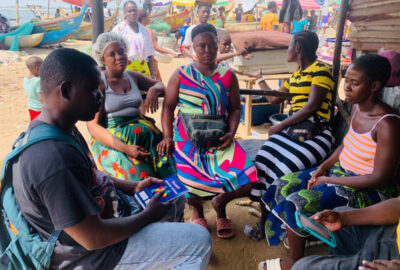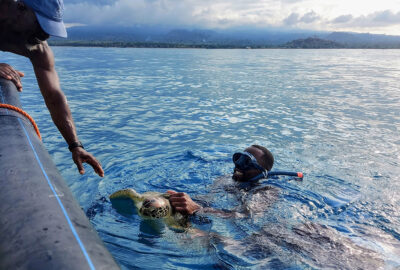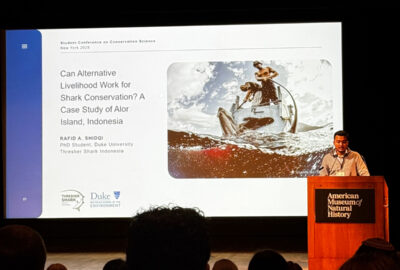A Q&A with Marine Conservation Action Fund Director Elizabeth Stephenson
By New England Aquarium on Wednesday, June 26, 2024

The New England Aquarium’s Marine Conservation Action Fund (MCAF) is a small grants and fellowship program that provides support for community-based projects spearheaded by local conservation leaders in low- and middle-income countries around the globe. Through this partnership, conservation leaders are creating solutions that benefit ocean health and support their local communities.
MCAF has been supporting organizations around the world for 25 years. Here, the fund’s director Elizabeth Stephenson talks about the program’s important milestones through the years, and what she hopes for the future.
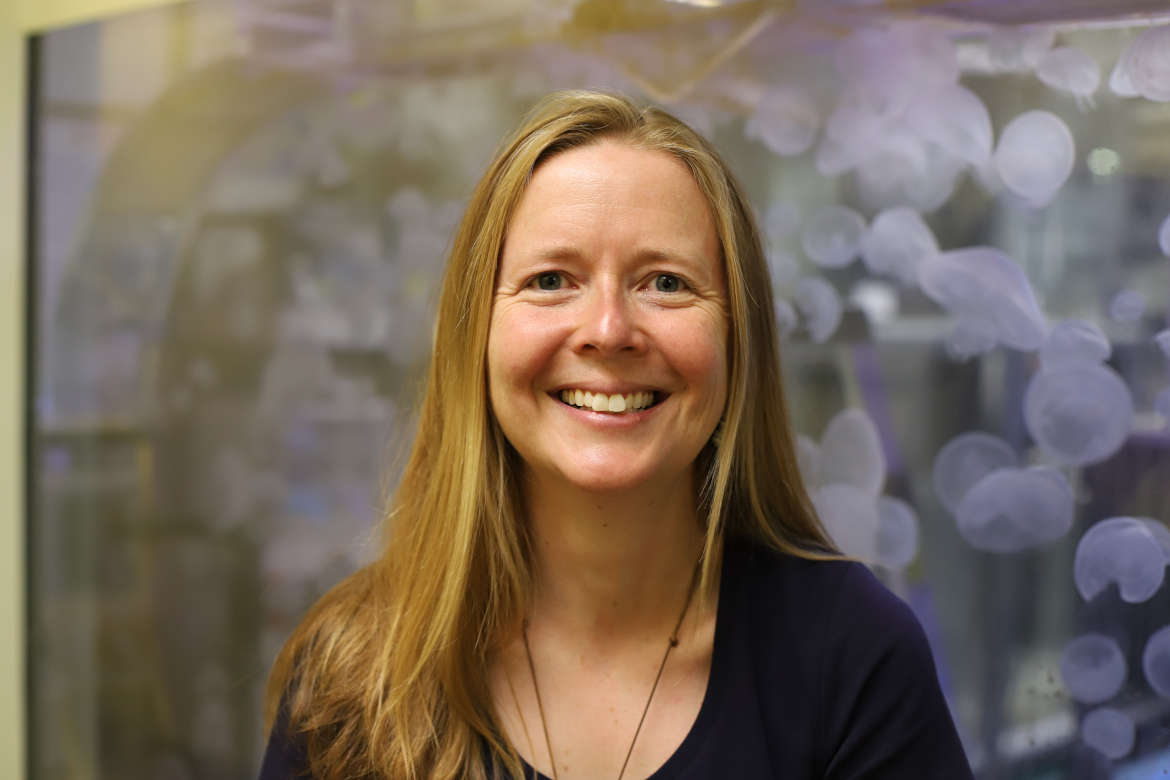
How does MCAF’s work align with the Aquarium’s mission?
The Aquarium understands that the future of our shared blue planet depends on more than just us. To truly make a difference in ocean conservation, it will take a worldwide network of people focused on the research and stewardship of ocean species and habitats in a sustainable and community-focused way. In addition, through its own work with local communities in Boston, the Aquarium understands that local leaders who are closest to the issues are best positioned to develop long-term solutions in collaboration with local stakeholders. However, only a tiny fraction of the already small percentage of funding that supports ocean conservation goes to locally run organizations. This is where MCAF comes in, to help ensure that local leaders and their organizations have the funding and resources they need to spearhead conservation initiatives over the long term.
How is MCAF working to advance equity in ocean conservation?
MCAF originally funded projects for any country with an ocean coastline, including the US and Canada. Over time, we realized funds for conservation research are not equitably distributed across the globe. The program shifted to only supporting projects in low- and middle-income countries because these locations contain the majority of the world’s coastlines and include key marine biodiversity hotspots. There are fewer financial resources available for conservation in the areas we support and we are committed to working with local leaders who know the issues, the culture, and the communities, which is key for achieving lasting outcomes.
How does MCAF decide what projects to fund?
We look for projects whose goals and approach are locally-informed and evidence based, recognizing that evidence can include scientific research and local, traditional, and Indigenous knowledge. Working with local communities and stakeholders is integral to the project, whether it’s fishing communities, women, youth, or government agencies. We seek project leaders who have a holistic approach and a larger vision that encompasses the community as they work to address a problem or need. We have learned from MCAF project leaders and fellows that these elements are vital for advancing lasting change.
How does MCAF benefit project leaders and fellows over the course of their work and vice versa?
MCAF provides multiple types of support to ocean conservation leaders across the globe, including funding, professional development, learning exchange, mentorship, community-building, and recognition. Specifically, we offer small grants of up to $12,000 for these community-based ocean conservation projects. These can include field surveys to find nursery grounds of endangered sharks; community-led programs to protect sea turtle nesting beaches; or working with small-scale fishers to identify and address threats to marine species and livelihoods.
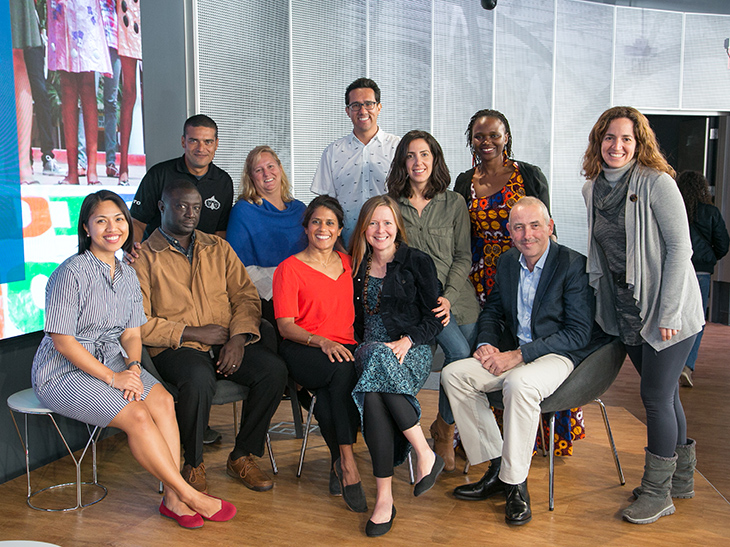
We provide opportunities for project leaders to apply for continuation funding, which is such a huge need given that most conservation projects are almost always long-term efforts. Through the MCAF Fellows Program, we invest in selected conservation leaders over the long term through developing enduring, two-way relationships, promoting learning exchange and building a dedicated community of peers. We also offer grants to support the sustainability of Fellows’ organizations and their efforts to train and collaborate with the next generation of ocean leaders. We bring fellows to the Aquarium for global summits every few years where they share their work and grow their connection with each other, the Aquarium community, and audiences in greater Boston. Fellows serve as key advisors to the MCAF program, providing feedback on the program’s direction, evaluating proposals and helping to ensure we are advancing inclusive and equitable conservation practices.
MCAF has supported more than 230 projects and 17 fellowships since 1999. What do you hope for the fund’s future?
Thanks to a generous and transformational gift from Alan and Lisa Dynner, we have been able to strengthen the global impact of the MCAF program and grow the community of conservation leaders it serves. But we hope to do more. One of our immediate goals is to expand the support we provide, extending our individual grants to multi-year grants to support the long-term success of MCAF-funded projects.
Our vision is of an MCAF program that continues to listen to and learn from the global community it serves; strives to advance best practices in inclusive, equitable, and locally-led conservation; and of a thriving program that has the resources to sustain and grow its support of ocean leaders, their organizations, and communities for generations to come.

Related Stories
Read more about recent MCAF projects from around the globe.
